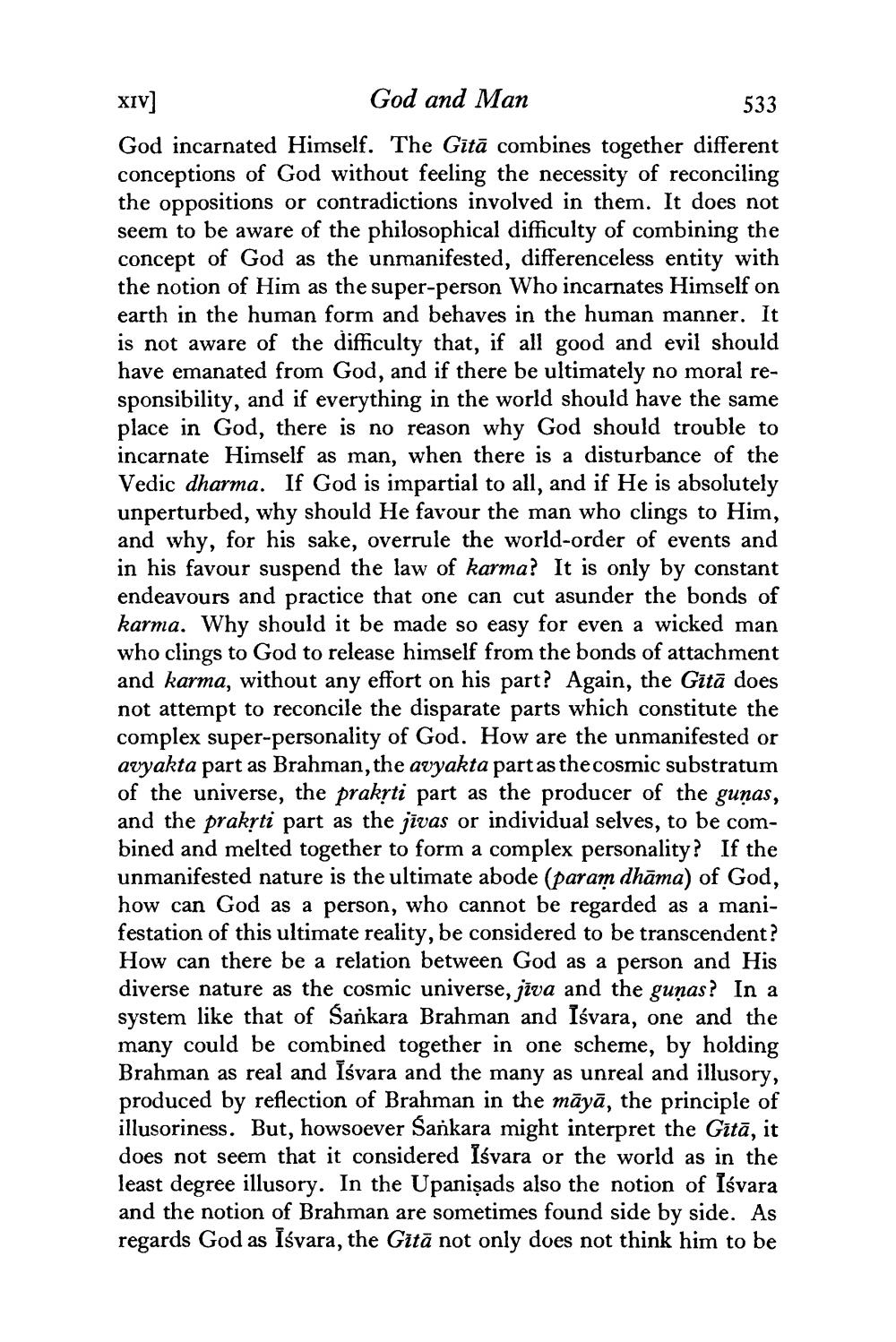________________
XIV]
God and Man
533
God incarnated Himself. The Gita combines together different conceptions of God without feeling the necessity of reconciling the oppositions or contradictions involved in them. It does not seem to be aware of the philosophical difficulty of combining the concept of God as the unmanifested, differenceless entity with the notion of Him as the super-person Who incarnates Himself on earth in the human form and behaves in the human manner. It is not aware of the difficulty that, if all good and evil should have emanated from God, and if there be ultimately no moral responsibility, and if everything in the world should have the same place in God, there is no reason why God should trouble to incarnate Himself as man, when there is a disturbance of the Vedic dharma. If God is impartial to all, and if He is absolutely unperturbed, why should He favour the man who clings to Him, and why, for his sake, overrule the world-order of events and in his favour suspend the law of karma? It is only by constant endeavours and practice that one can cut asunder the bonds of karma. Why should it be made so easy for even a wicked man who clings to God to release himself from the bonds of attachment and karma, without any effort on his part? Again, the Gita does not attempt to reconcile the disparate parts which constitute the complex super-personality of God. How are the unmanifested or avyakta part as Brahman, the avyakta part as the cosmic substratum of the universe, the prakṛti part as the producer of the gunas, and the prakṛti part as the jivas or individual selves, to be combined and melted together to form a complex personality? If the unmanifested nature is the ultimate abode (param dhama) of God, how can God as a person, who cannot be regarded as a manifestation of this ultimate reality, be considered to be transcendent? How can there be a relation between God as a person and His diverse nature as the cosmic universe, jiva and the guṇas? In a system like that of Sankara Brahman and Iśvara, one and the many could be combined together in one scheme, by holding Brahman as real and Isvara and the many as unreal and illusory, produced by reflection of Brahman in the māyā, the principle of illusoriness. But, howsoever Sankara might interpret the Gitā, it does not seem that it considered Isvara or the world as in the least degree illusory. In the Upanisads also the notion of Isvara and the notion of Brahman are sometimes found side by side. As regards God as Iśvara, the Gitā not only does not think him to be




